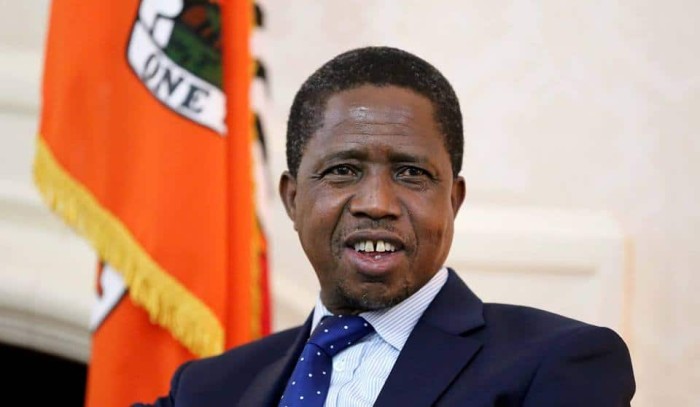
ZAMBIA’s TOXIC POLITICAL SEASON OF SMEAR CAMPAIGNS IS BACK; DELUSIONAL HH’s FAILED PROMISES FORCES HIM TO GO AFTER EDGAR LUNGU IN A BID TO COVER HIS GROSS INCOMPETENCE
UNZA STUDENT DEFENDS EDGAR LUNGU
ZAMBIA’s TOXIC POLITICAL SEASON OF SMEAR CAMPAIGNS IS BACK; DELUSIONAL HH’s FAILED PROMISES FORCES HIM TO GO AFTER EDGAR LUNGU IN A BID TO COVER HIS GROSS INCOMPETENCE
Story By Mordon Chibwe, Political Science Student at UNZA
Just as hope appears on the horizon, Zambia’s political landscape appears to veer into a familiar deja vu. The tantalizing promise of change has once again given way to the same old political drama, as if stuck in an endless loop.
In a Facebook post, former President of Zambia, Edgar Lungu, dismissed a report purportedly from the International Consortium of Investigative Journalists (ICIJ) titled: “Swazi Secrets – a glimpse inside the tiny Kingdom” as a pack of lies, suggesting it’s an attempt to revive an issue that is essentially water under the bridge.
The report alleges that the former President owns property in Eswatini worth millions of kwachas. What appears to have irked the former President, according to the post, is the fact that Cabinet Minister in charge of Housing and Infrastructure in the government of President Hakande Hichilema, Mr. Charles Milupi, is quoted in one of Zambia’s tabloids challenging Lungu to explain the source of the money for the said investment in Eswatini.
Lungu explains that he does not own property in Eswatini. He clarifies that in 2018, the Eswatini Head of State, King His Majesty Mswati III, offered him an empty plot in his kingdom as a gift, which he declined for obvious reasons. It was an open and shut case, and the timing of its resurfacing raises questions.
In the wake of these allegations against the former President, it’s imperative to dissect the motivations behind these persistent attacks. Despite President Lungu’s transparent explanation, the resurgence of the claims seems driven by malicious intent and also a desperate attempt by the incompetent Hichilema government cover up its gross mismanagement of the economy and the spiraling social ills.
As Zambia gears up for a pivotal election in 2026, it’s no surprise that the political landscape is heating up. President Lungu’s popularity both in the urban and rural areas of the country as a potential challenger to the incumbent naturally makes him a target for those seeking to undermine his chances of bouncing back on the ballot.
In the Facebook post, Lungu states, “…it can clearly be seen that this is not a new allegation. It has been popping up occasionally, especially from malicious people whose fervent desire is to paint me black…”
It is evident that the timing of these allegations has been conveniently slotted ahead of the upcoming election, a calculated move to tarnish the former President’s image and potentially disqualify him from the presidential race.
It is also crucial to note that the attacks are fueled by more than just political rivalry—they are symptomatic of a deeper issue plaguing Zambian politics. Rather than engaging in constructive discourse on policy and governance, some factions of the ruling party have resorted to smear campaigns and character assassination against Edgar Lungu to gain an edge. This regressive approach not only stifles political progress but also erodes public trust in the democratic process.
At its core, politics should be about addressing the needs and concerns of the people, not mudslinging and personal vendettas. If Zambia is to move forward as a nation, it’s imperative that political actors, particularly government agents, focus on substantive issues rather than resorting to tactics aimed at derailing their opponents.
True progress can only be achieved through genuine politicking, which is motivated by dialogue, transparency, and a commitment to serving the interests of the nation in a marketplace of ideas above all else.
It is also incumbent upon Zambian citizens not to settle for less, but to demand accountability and integrity from their leaders. Zambians have a duty to reject politics of smear and to embrace a discourse centered on policy and governance. In that way, Zambia can chart a path towards a brighter and more prosperous future.
Feedback: m.chibwe@unzacampus.zm